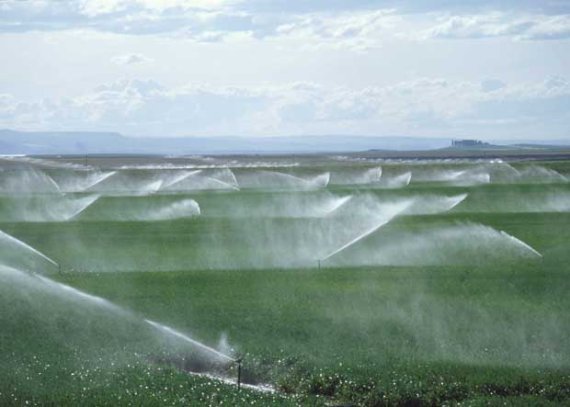The global population may grow this century to nine or even twelve billion people. To feed them all, food production needs to more than double. Yet there is not enough water to produce that amount of food. By the end of the century it will be impossible to meet one quarter of the water requirements, shows research for which Hester Biemans got her PhD at Wageningen University on Friday 5 October. Biemans works in the Climate Change and Adaptive Water Management Group at Alterra. Currently used calculation models about future food production predict that it will be possible to double production. These models count on a growth in crops and take economic influences into account. They predict a growth in the amount of land on which crops are irrigated, because it is precisely in irrigated agriculture that there are productivity gains to be made. ‘But the studies wrongly assume that there is enough water for that,’ says Biemans.
Climate change
The researcher compared the future demand for irrigation water that these models predict with figures on the actual availability of water from the runoff from rivers worldwide. This comparison reveals the future shortage of irrigation water. Biemans also looked at the influence of climate change. ‘That seems to have little influence on the total availability of water worldwide.’ There was already concern about a future water shortage but now for the first time there are figures on it. They are clear. The shortage of irrigation water will mean that at the end of this century 20 percent less food will be produced than would have been possible in the ‘best case scenario’ with enough water. In south Asia and southern Africa this loss could be as great as 50 percent. Only strong measures can reverse this prospect. This would mean investing heavily in more water reservoirs, or in efficient irrigation in which less water is lost. Using drip irrigation, for example, instead of flooding fields, or using closed pipelines instead of open channels.

